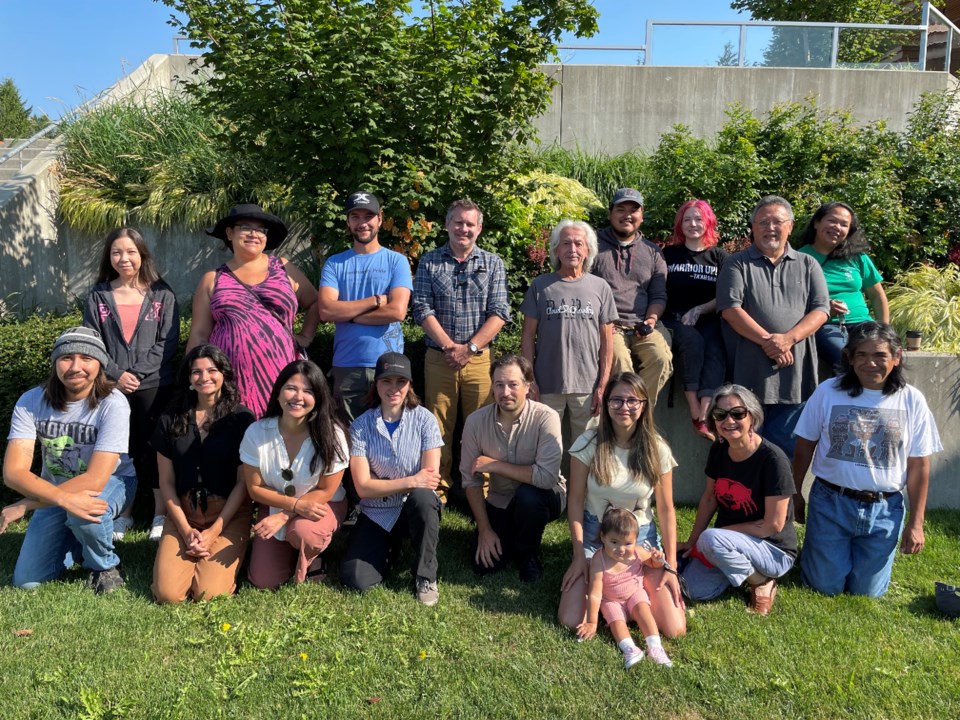Tsleil-Waututh Nation, Wild Bird Trust of BC, and the North Vancouver Community Arts Council have been named as recipients of this year’s Heritage BC 150 Time Immemorial Grant which looks to support reconciliation through cultural heritage infrastructure, awareness, and planning.
The $30-million provincial grant, administered by the heritage organization and the First People’s Cultural Foundation, supports community-based projects across B.C., and the three North Shore projects are part of the 32 awarded in the Lower Mainland.
Wild Bird Trust of BC was awarded a $100,000, the biggest of the three, for its ongoing work to repair the ecological and cultural relations at Squaw-uck (Maplewood Flats).
Speaking to the North Shore News, WBT president Irwin Oostindie said the grant allows for the trust to move from conversations of reconciliation to physical redress.
“[It] gives us the space to move from dialogue to action,” he said. “And the importance of recognizing Maplewood Flats as an actual site of industrial harm to unceded lands, and that the mud flats actually once ran across the entire North Shore to the First Narrows, and those mud flats have all been industrialized.”
Oostindie said that as Maplewood Flats is the only wildlife sanctuary in Burrard Inlet, “We have this responsibility to move towards two-eyed seeing, and really deploy Indigenous knowledge to acknowledge the harm that our settler society has done to Tsleil-Waututh and [Sḵwx̱wú7mesh] Squamish Nations.”
The grant will allow the trust to create an “outdoor classroom” to be used with schools and community partners, Oostindie explained.
“Now we can have an appropriate cultural space to do this education work,” he said. “[It] becomes a place where we shift from having predominantly white settlers observing birds in a post-industrial site, but we look more at the site's true history, past, present and future, acknowledging the harm, but then also diversifying our approaches through Indigenous knowledge.”
“So the infrastructure we're building through this grant will create that platform for us to think about the site as a place where we can honour and repair those relationships, those ecological and cultural relations,” Oostindie said.
TWN cultural history
Tsleil-Waututh Nation’s $32,460 grant from Heritage BC was awarded for its archaeological laboratory, which Gabriel George, the director of treaty, lands and resources at the Nation, said will acquire equipment and supplies to outfit its new laboratory and archaeological collections repository.
George said for decades, the Nation has been building capacity in its archaeological and cultural heritage program, and recently developed its own archaeological space.
“The acquisition of laboratory equipment will allow Tsleil-Waututh to better care for Tsleil-Waututh cultural heritage, conduct archaeology laboratory analyses in-house and provide training for the Tsleil-Waututh community, and reconnect Tsleil-Waututh community members with their cultural history.,” he said. “This is a step in our continued efforts to regain sovereignty over Tsleil-Waututh cultural heritage.”
Culture Compass
The third and final grant, awarded to North Van Arts for $30,000 is supporting the council’s work to deepen understanding and increase visibility of Squamish and Tsleil-Waututh cultures and Nations on the North Shore.
Nancy Cottingham Powell, executive director at North Van Arts, said the grant will be used to bolster the already in-service North Shore Culture Compass with Tsleil-Waututh place names using the Nation’s hən̓q̓əmin̓əm̓ language, a “down-river” Halkomelem dialect.
Powell said with the grant, the council will look to hire an Indigenous person to lead the work, which she said might be shared with other community partners across the North Shore.
“It's just going to add more depth, more stories, more art, to the tool,” she explained. While the council is often asked how its map is different compared to the FIrst Peoples Cultural Council tool, Powell said it is very broad and not a lot of detail about local regions is included. "Whereas [North Shore Culture Compass is] able to go into great detail about our North Shore region.”
Recipients of the grants will be working on the projects in the upcoming years, with the final projects to be completed in July 2024.




